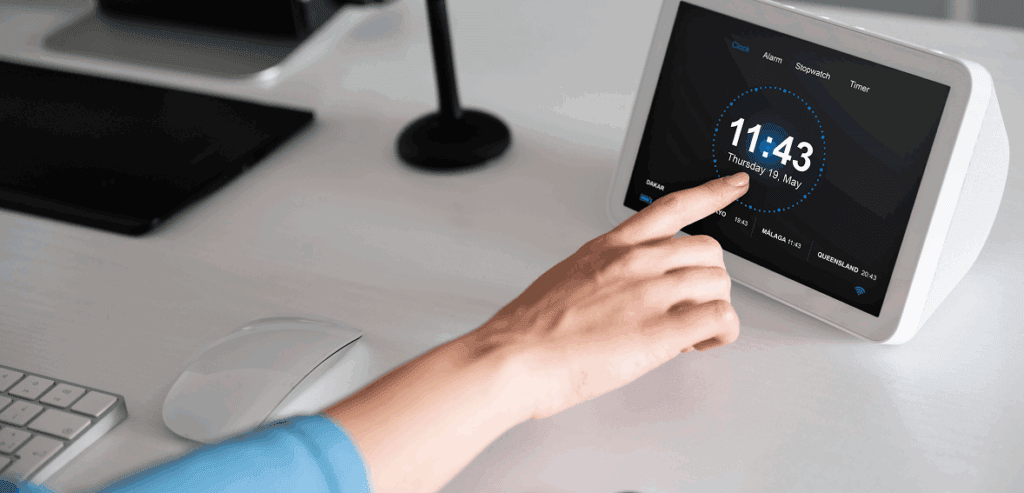
By Rebecca Belanger November 4, 2025
Missed appointments are more than just an inconvenience; they disrupt schedules, reduce revenue, and limit access for patients who truly need care. In medical offices, where time and resources are tightly managed, even a small percentage of no-shows can have a large financial impact. However, with the right combination of deposits, reminders, and waitlists supported by robust health management software, healthcare providers can create a reliable scheduling system that minimizes missed visits and keeps operations smooth.
This practical guide explores how technology-driven strategies and thoughtful patient engagement can reduce no-shows while maintaining a positive experience. From automated communication tools to HIPAA compliant payments, the focus is on real-world solutions that help clinics balance convenience, security, and efficiency.
The Hidden Cost of Patient No-Shows

No-shows don’t just cost time; they affect financial health and care continuity. A missed appointment means a lost billing opportunity, disrupted workflows, and lower staff morale. For small practices, consistent no-shows can even threaten sustainability. Modern care management software addresses this issue by integrating reminders, deposits, and scheduling tools that help providers fill gaps before they become costly.
With medical office software, practices can track no-show patterns, identify high-risk time slots, and automatically offer open appointments to patients on a digital waitlist. These insights make scheduling proactive rather than reactive, helping maintain predictable patient flow and stable revenue.
Deposits as a Commitment Strategy
Requiring deposits before confirming appointments is a proven way to ensure patients value their booking. When patients pay a small refundable deposit enabled through healthcare payment processing tools, it adds a sense of accountability without compromising trust. Deposits act as a gentle reminder that the provider’s time holds value, which reduces impulsive cancellations and forgotten appointments.
Modern patient payment solutions make collecting deposits simple and secure. Systems like medical billing software allow offices to link deposits with appointment records, automatically refund them upon attendance, or apply them to treatment costs. These tools, integrated into medical practice management software, ensure transparency while aligning with HIPAA compliant payments and PCI standards for secure data handling.
Automating Appointment Reminder

Timely communication is one of the strongest defenses against no-shows. With automated SMS, email, or app-based reminders built into patient scheduling software, practices can remind patients days or even hours before their appointments. Automation ensures consistency with no human error, no missed follow-ups, and complete customization to match each clinic’s workflow.
When reminders are managed through health management software, the system can track delivery, read receipts, and confirmations in real time. This eliminates uncertainty about whether a patient has received a message. By integrating reminders with healthcare merchant services, patients can also prepay or adjust their appointments instantly, giving them flexibility and improving engagement rates.
Building and Managing Digital Waitlists
Cancellations are unavoidable, but with waitlists, they don’t have to result in lost revenue. Care management software allows clinics to create automated digital waitlists that notify patients as soon as a slot opens up. This keeps schedules full while accommodating patients who are flexible with timing.
A smart waitlist within medical practice management software can automatically prioritize patients based on urgency, appointment type, or availability. Integrated healthcare payment processing tools can even pre-authorize payments to ensure patients who accept last-minute slots show up, turning idle time into productivity.
Streamlining Front Desk Operations
Front-desk staff juggle scheduling, billing, and patient communication daily. Automating repetitive tasks through medical office software can drastically reduce stress and improve accuracy. When deposits, reminders, and waitlists are all connected through one health management software platform, front-desk workflows become seamless.
Instead of manually confirming every appointment, staff can focus on delivering better patient experiences. Medical billing software linked with HIPAA compliant payments also ensures that sensitive financial data is handled securely while keeping collections streamlined and transparent.
Leveraging Patient Communication Tools

Effective communication goes beyond reminders. Integrated care management software allows clinics to use text messaging, in-app notifications, and emails to maintain ongoing patient contact. Whether it’s confirming appointments, sharing pre-visit instructions, or following up after care, these tools nurture stronger patient relationships.
When paired with healthcare merchant services, communication channels can also facilitate instant payment options. Patients can clear co-pays or deposits directly from reminder links, ensuring a smoother check-in process and fewer payment delays. This convenience reinforces a positive brand image while improving collection efficiency.
Simplifying Payment Collection and Refunds
Deposits only work when payment workflows are simple and secure. Integrated healthcare payment processing and patient payment solutions make this possible. By embedding payment links into appointment confirmations or reminders, practices reduce friction and ensure every transaction is traceable.
Using medical billing software aligned with HIPAA compliant payments standards ensures compliance and safety. Automated refund mechanisms can release deposits back to patients who attend or cancel within the allowed period, maintaining fairness and trust. With the right medical office software, these processes become fully automated, reducing administrative time and errors.
Tracking and Reporting Attendance Patterns
Data-driven insights are crucial for understanding why no-shows happen. Health management software equipped with analytics dashboards allows providers to monitor attendance rates, cancellation reasons, and patient behavior trends. By studying this data, administrators can design better policies such as specific reminder intervals or deposit structures that address recurring issues.
With medical practice management software, these reports integrate directly into billing and scheduling modules, providing a complete picture of patient engagement. In combination with medical billing software, they also help identify revenue loss and highlight opportunities for improvement.
Maintaining Compliance and Security
When handling deposits, payment details, and patient data, compliance is non-negotiable. HIPAA compliant payments and PCI-DSS standards ensure that all financial and personal information is encrypted and protected. Using verified healthcare merchant services and care management software platforms guarantees that sensitive data is processed securely.
Modern medical office software includes built-in compliance checks that restrict unauthorized access and track user actions for accountability. These safeguards protect both the provider and the patient, ensuring trust while maintaining operational efficiency.
Enhancing the Patient Experience
Reducing no-shows isn’t only about improving revenue, it’s about improving relationships. Patients value clear communication, convenience, and respect for their time. Using patient scheduling software and health management software allows clinics to offer easy rescheduling, digital payments, and real-time support.
The ability to confirm, cancel, or modify appointments online reduces anxiety and frustration. With patient payment solutions that offer transparency and flexible options, clinics foster loyalty and encourage patients to stay engaged in their care journey.
Integrating with Billing and Revenue Cycles
Every missed appointment affects the revenue cycle. Linking scheduling systems to medical billing software ensures that deposits, payments, and claims flow automatically through the system. Healthcare payment processing tools simplify revenue tracking, while medical practice management software connects all the moving parts such as appointments, payments, and reports under one digital umbrella.
Automation reduces manual data entry, prevents billing errors, and accelerates reimbursements. By unifying these systems, clinics not only reduce no-shows but also improve financial stability and operational visibility.
The Role of Cloud-Based Systems
Cloud-based health management software brings flexibility and scalability to healthcare operations. It allows providers to access scheduling, billing, and payment data anytime, anywhere. Cloud solutions like Cloud Care Manager combine care management software, patient scheduling software, and medical billing software into one secure platform, enabling effortless collaboration among staff and departments.
These systems streamline everything from eligibility checks and claim submissions to secure HIPAA compliant payments. They provide real-time visibility across the patient journey, helping practices maintain consistent communication, fast collections, and fewer missed appointments.
Building a Culture of Accountability and Care
Technology can reduce no-shows, but the human touch remains essential. When staff use medical practice management software tools to reinforce empathy and understanding such as checking in after missed appointments or offering flexible reschedules, patients feel cared for, not managed. This culture of accountability paired with digital precision leads to better engagement and long-term retention.
Integrating healthcare merchant services with strong communication practices shows patients that their time and privacy are valued. Over time, these consistent interactions build trust, improve attendance, and enhance the overall patient experience.
Conclusion
Reducing no-shows requires a combination of human understanding and smart technology. Deposits encourage commitment, reminders prevent forgetfulness, and waitlists turn cancellations into opportunities. With the support of modern health management software, care management software, and medical office software, clinics can streamline operations, protect revenue, and offer better care continuity.
Platforms like Cloud Care Manager embody this transformation by uniting scheduling, billing, and healthcare payment processing into one seamless system. Backed by HIPAA compliant payments, automated communication, and transparent workflows, such solutions create efficient, patient-friendly environments that keep both providers and patients on schedule. In a world where time defines trust, proactive systems ensure care never has to wait.